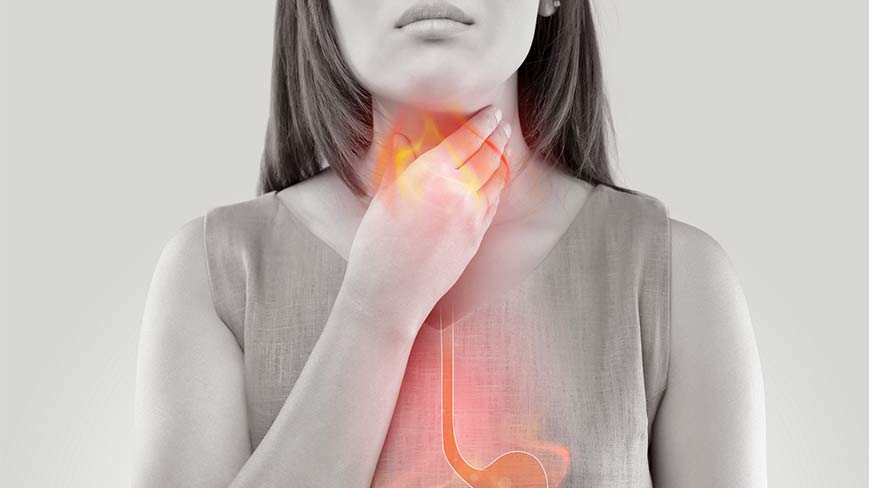9 Common Digestive Conditions You Might be Experiencing
We all experience digestive conditions now and then, but it’s generally not something people are comfortable talking about. However, having an honest conversation with your doctor about those embarrassing symptoms can make a serious difference. Your doctor can not only help improve your symptoms now for a more comfortable lifestyle but can also help you avoid future complications.
Here are nine common digestive conditions that might be causing your symptoms:
Gastroesophageal reflux (GERD)
When stomach contents leak up into your esophagus regularly — at least twice a week — you may have GERD. The stomach acid that leaks into your esophagus can cause a slew of symptoms. Nausea, a sour taste in your throat, bad breath, dental problems, difficulty swallowing, breathing problems, and of course, the familiar discomfort of heartburn can all be a result of GERD.
Treatment can include dietary and other lifestyle changes, medications, and even surgery.
Irritable bowel syndrome
Irritable bowel syndrome (IBS) is a chronic condition that can cause bloating, constipation or diarrhea (and sometimes they alternate), excessive gas, mucus in the stool, or dry, hard stools.
While most people will occasionally have any of those symptoms, IBS sufferers have them frequently, especially when they are experiencing stress. While IBS is not dangerous, it can cause hemorrhoids and can be very uncomfortable.
Treatment includes lifestyle and dietary changes, stress management, and sometimes medications.
Crohn’s disease
Crohn’s disease is a chronic inflammatory bowel disease that can affect different parts of the digestive tract. Some of the symptoms are digestive like abdominal pain, rectal bleeding, weight loss, and diarrhea, but others may seem unrelated like inflammation of the joints or fever.
Symptoms may come and go. Crohn’s disease can cause serious complications like malnutrition and osteoporosis.
Treatment may include medications and lifestyle changes, or surgery if those don’t work.
Ulcerative colitis
Like Crohn’s disease, ulcerative colitis is a chronic inflammatory bowel disease that can get worse over time. It can cause irritation, inflammation, and sores in your colon. Symptoms are abdominal cramping, fatigue, loss of appetite, urgent and frequent bowel movements, blood in the stool, and painful diarrhea.
Some people may also experience a rash, joint pain, or irritated eyes. Like Crohn’s disease, symptoms can come and go.
Treatments include medications, avoiding foods that trigger irritation, or surgery to remove the colon.
Celiac disease
Celiac disease is a condition where your small intestine has an immune response to gluten that eventually damages its lining. Gluten is a protein in some of the grains we eat, including barley, rye, different varieties of wheat, and sometimes oats. People with celiac disease have a variety of symptoms, like fatigue, bone and joint pain, weight loss, diarrhea, nausea, and other digestive symptoms.
Treatment is to remove gluten from your diet entirely.
Diverticular disease
Diverticulosis and diverticulitis are related types of diverticular disease. Diverticulosis is when tiny pockets form in the bowel walls. You may not even know they are there. But, if a pocket or pockets develop inflammation or infection, it becomes diverticulitis. Diverticulitis can be painful, causing cramping, abdominal tenderness, nausea and vomiting, fever, constipation, or diarrhea. Left untreated, it can cause tears in the intestinal wall that may lead to serious complications like obstruction or sepsis.
A high fiber diet can help keep the pockets from forming. For diverticulitis, antibiotics, a clear liquid diet, or even surgery may be necessary.
Gallstones
Your gallbladder is a small, sack-like organ that helps your body digest fats. It stores bile from the liver and then squeezes it into the small intestine when it’s needed for digestion. Sometimes, elements in the bile crystallize into gallstones. Gallstones are normally harmless but can cause pain, nausea, inflammation, blockage of bile ducts, and infection.
Treatment can include medications, shockwaves to break up the stones, surgery, and antibiotics for an infection.
Constipation
Constipation is frequently a symptom of gastrointestinal conditions, but it’s not only a symptom. It can also be a chronic issue that has the potential to cause hemorrhoids, anal bleeding, or even bowel incontinence. If the stool is difficult to pass, is dry and hard, or you feel blocked, you may have constipation. Occasional constipation isn’t harmful, but if the problem continues long-term, it’s important to see a doctor.
Treatment includes diet and lifestyle changes and using laxatives.
Hemorrhoids
Hemorrhoids are irritated, swollen veins in your rectal area. They can develop inside the rectum or outside in the skin around the anus. Some of the causes are pregnancy, obesity, low fiber diets, chronic constipation, and straining with bowel movements.
Treatments include eating a high fiber diet, laxatives, pain relievers, soaking, and hydrocortisone creams. Surgery or other less invasive procedures are also options if necessary.


